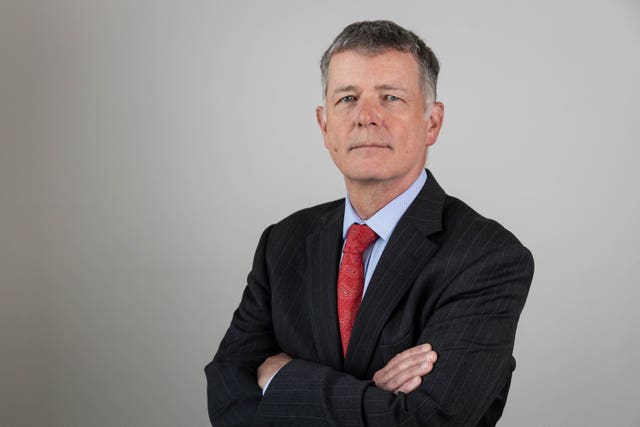MI6 chief: Help needed from tech sector to counter rising threats
Richard Moore said China is using its ability to harness data and its financial muscle as diplomatic leverage.

The head of MI6 has warned about China’s use of financial and data power to wield influence as he set out the need for Britain’s spies to work with the global tech sector to maintain cutting-edge capabilities.
Richard Moore said Beijing used “debt traps and data traps” to get countries and individuals “on the hook”.
The increasing complexity of the technology being used around the world meant MI6’s “boffins” were unable to meet the challenges alone and outside help was needed, he added.

The changing nature of the work meant that a James Bond-style Q figure is no longer able to provide all the technological capabilities required by MI6, he said.
“Given the challenges to the way in which we go about recruiting and running secret agents, if you look at some of the technology that is available to authoritarian regimes around so-called smart cities, technologies, surveillance etc then clearly, in order to stay ahead of that, we can’t do all of this in-house,” he told BBC Radio 4’s Today.
“As you say, we can’t do it in our Q labs, the boffins behind the wire-type model doesn’t work for us any more.”
Mr Moore highlighted China as one of the countries which had been able to harness the power of technology, coupled with its economic might, to assert itself on the global stage.
Its artificial intelligence capabilities allow Beijing to “harvest data from around the world”, he said.
“And it’s also trying to use influence through its economic policies to try and sometimes, I think, get people on the hook.”
China will use its ability to control data and its financial power as “leverage” against targets. He said the “debt trap” has allowed China to be given the use of ports – which could be used as naval bases – in countries which are unable to repay loans.
He added: “The data trap is this: that, if you allow another country to gain access to really critical data about your society, over time that will erode your sovereignty, you no longer have control over that data.
“That’s something which, I think, in the UK we are very alive to and we’ve taken measures to defend against.”
China “does not share our values and often their interests clash with ours” and Chinese President Xi Jinping is “very clear that we are now in a more assertive stage with China”, he said.
Although he was not seeking an “adversarial relationship” with China “we need to be very robust in fighting our corner”, he added.
In a wide-ranging interview, Mr Moore said:
– Assessments of the speed with which Afghanistan would be taken by the Taliban were “clearly wrong” but it was “overblown to describe it in terms of intelligence failure” because not even the Taliban had predicted the fall of Kabul so quickly.
– There is a “chronic problem” over the situation in Ukraine, and Moscow presented an “acute threat” but it needed to be made clear to the Kremlin that the West was “not trying to encircle Russia”.
– MI6 had to recruit from “all sections of society” through an online process rather than relying on personal recommendations as “there are risks that you tap on the shoulder people who look like you”.
– The UK has a “great science and tech sector” and said free societies in the West had advantages because “we do have an ability to get the entrepreneurial animal spirits going in a way that perhaps authoritarian regimes don’t”.
“MI6 deals with the world as it is, not as we would like it to be,” he will say according to advance extracts of his speech.
“And ‘digital attack surface’ criminals, terrorists and state threats that seek to exploit against us is growing exponentially.
“According to some assessments, we may experience more technological progress in the next 10 years than in the last century, with a disruptive impact equal to the industrial revolution.
“As a society, we have yet to internalise this stark fact and its potential impact on global geopolitics.
“But it is a white-hot focus for MI6.”
Mr Moore, who took over as chief in October 2020, will say the organisation has to become as diverse as the society it is drawn from if it is to attract the talent it needs.
“Our adversaries are pouring money and ambition into mastering artificial intelligence, quantum computing and synthetic biology, because they know that mastering these technologies will give them leverage,” he will say.
“An intelligence service needs to be at the vanguard of what is technologically possible.
“This is not new.
“What is new is that we are now pursuing partnerships with the tech community to help develop world-class technologies to solve our biggest mission problems, and those of MI5 and GCHQ.”




